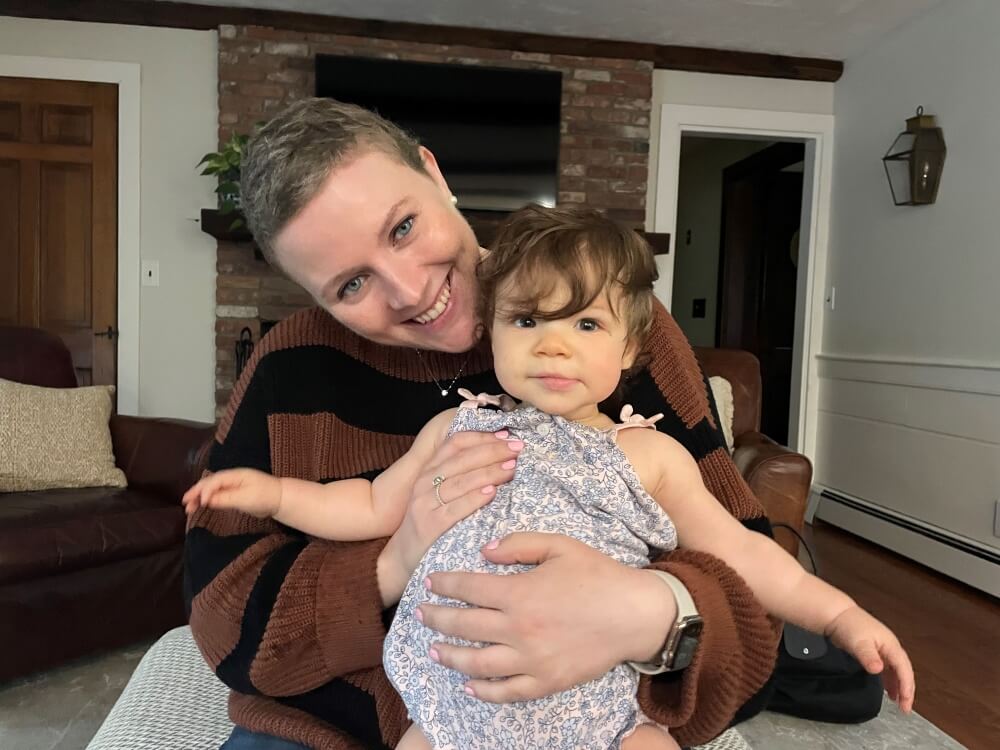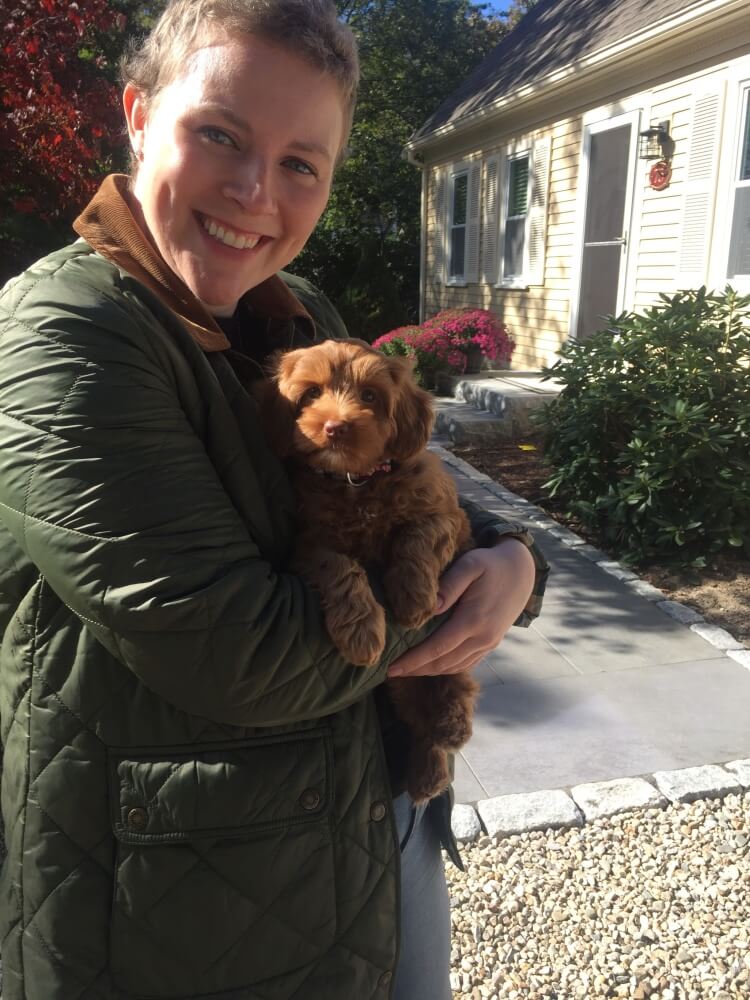Like many people, Caroline McGuirk knew that lumps can be a symptom of breast cancer, even if most of them end up being noncancerous. What she wasn’t aware of is that the redness and swelling she had noticed in her right breast months before finding two lumps there can be indicators of inflammatory breast cancer (IBC) — a rare, aggressive type of the disease. Lumps, in fact, are often not found in the breasts of IBC patients.
By the time she got to the doctor and received a diagnosis, on Christmas Eve, 2020, McGuirk had stage IV IBC that had spread to her lymph nodes and pelvic bone. She immediately began treatment at the Inflammatory Breast Cancer Program at Dana-Farber Brigham Cancer Center, the only program in the Northeast dedicated entirely to IBC care and research. Now, as her treatment journey continues, McGuirk is committed to teaching others what she’s learned: there’s more than one symptom of breast cancer.
“This is a part of my life I would like to go away — I know it can’t, so I’m creating a new vision of what my life will look like,” says McGuirk, 33. “That includes spreading the word.”

Home to family, treatment
It was COVID-19, as well as cancer, that led McGuirk to Dana-Farber Brigham Cancer Center. The Duxbury, Mass, native was living and working in Southern California when the coronavirus pandemic reached the United States in early 2020. Wanting to be with her family in challenging times, she temporarily relocated back to Duxbury that spring while continuing to work remotely.
Then, in September 2020, McGuirk started feeling a tightness in her bra when taking it off at night.
“My breast was swelling so subtly that I didn’t notice it at first,” she recalls. “About a month later, my skin on that breast began changing, with some redness and dimpling in places. Because I was 31, and healthy, I never imagined it was cancer.”
Her primary care physician was still based in California, so McGuirk put off getting her breast checked. It wasn’t until she felt a mass behind her right nipple in November that she called a Boston-based doctor; by the time she was examined on Dec. 18, there were two masses — which a mammogram and ultrasound confirmed were cancerous.
Even then, McGuirk didn’t know exactly which cancer she had. Inflammatory breast cancer can only be diagnosed clinically, not by a specific blood test or screening. It took a referral to Dana-Farber Brigham for McGuirk to learn she had IBC.
According to Filipa Lynce, MD, director of the IBC Program at Dana-Farber Brigham, McGuirk’s case is not unusual. She says most providers will initially prescribe antibiotics to a patient who presents with a swollen, reddened breast, since these symptoms suggest the individual has an infection or mastitis. What’s important, Lynce adds, is that doctors — and patients — not assume these are the only possibilities.
“If you don’t see a quick response to antibiotics, don’t assume a second course will solve the problem,” says Lynce, McGuirk’s oncologist. “Have breast imaging done, and if that is inconclusive, consult a surgeon and get a biopsy. The earlier IBC is found, the better the chances for recovery.”

Running to the future
Once diagnosed, McGuirk’s decision to come home during the pandemic took on added significance. She had her family around her during her 2021 treatment, which included 20 weeks of chemotherapy, a modified radical right-side mastectomy with lymph node removal, and then six weeks of radiation. McGuirk credits Lynce and the rest of her clinical care team for making her feel comfortable and confident through each step, and her California-based employer for letting her continue working remotely from 3,000 miles away.
Another major source of support was her sister, Katie, a past Dana-Farber employee. In 2014, the siblings had run the Boston Marathon® together to raise money for cancer care and research as part of the Dana-Farber Marathon Challenge team. Now they teamed up again to establish the McGuirk Family Fund at Dana-Farber which, through the generosity of friends and family, has amassed more than $100,000 in funds raised for the IBC Program.
As McGuirk continues her follow-up care there, including regular infusions to control her disease, she doesn’t know exactly what the future holds. But with incredibly supportive family and friends and a new puppy named Koa — “brave” in Hawaiian — by her side, she’s ready for it.
